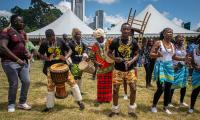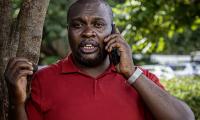Hvilke betingelser efterlader militærkup for de politiske partier og demokratiet?
Burkina Fasos militære leder, kaptajn Ibrahim Traore, har proklameret, at demokratiske valg ikke længere er en prioritet for det afrikanske land. Hvad betyder det for de afventende politiske partier og Burkina Fasos demokratiske fremtid?
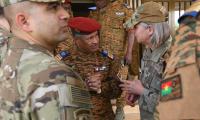
On Friday, September 29, almost a year after seizing power after the latest military coup, the junta leader, Captain Ibrahim Traore, said that elections are “not a priority; clearly, security is the priority” on national TV.
This declaration was preceded by an earlier announcement on September 16 that Burkina Faso, Mali, and Niger had signed a mutual security agreement to support one another in cases of ‘external aggression’. This will entail the Economic Community of West African States (ECOWAS) intervening to restore civilian rule.
When sworn in as interim president, Traore made vows to win back territory and facilitate a transition to democracy, culminating in elections in July 2024. However, these recent statements have postponed the return of democracy in Burkina Faso indefinitely.
DIPD has asked Thomas Rayedé Ouedraogo, Executive Director at the Centre for Democratic Governance Burkina Faso (CGD), about what this development means for the pending political parties and intuitions in the country.
How do you and the political parties view the delay in organising presidential elections in Burkina Faso?
The delay in organising presidential elections in Burkina Faso can be a matter of concern for various political parties and stakeholders, as it may have implications for the democratic process and political stability in the country.
Delays in holding elections can raise questions about the government's commitment to democratic principles and lead to political tensions.
Political parties and their leaders may have differing views on the reasons for the delay, and their perspectives may depend on their interests and positions in the political landscape.
Some parties may argue that the delay is necessary due to security concerns, while others may see it as a way for the incumbent government to cling to power.
What role can and should the political parties play in the current political landscape of Burkina Faso?
The role of political parties in Burkina Faso, like in any democratic society, is essential for the functioning of the political landscape and the development of the country.
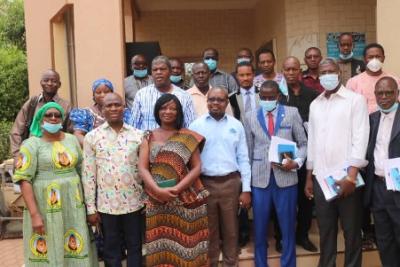
In the current political landscape of Burkina Faso, political parties should prioritise efforts to stabilise the country, strengthen democratic institutions, and address pressing issues such as security, economic development, and social welfare. They should also work towards national unity and social cohesion, as Burkina Faso has faced security challenges and ethnic tensions in recent years.
To be effective, political parties in Burkina Faso should adhere to democratic principles, promote inclusivity, and prioritise the welfare of the citizens over narrow partisan interests. Additionally, they must be transparent in their operations and accountable to their constituents to build trust among the electorate.
It is important to note that the effectiveness and impact of political parties in Burkina Faso will depend on their ability to work together, bridge political divides, and prioritise the long-term well-being of the country over short-term political gains.
Do you believe that democracy is still achievable under the current circumstances, and if so, how?
Democracy is a complicated and multifaceted idea, and a variety of factors can affect its success or failure. Some of them are the willingness of a country's leaders and institutions to uphold democratic principles is crucial. Another is a vibrant and active civil society, including NGOs, media, and grassroots organisations, which can play a significant role in safeguarding democracy.
It is important to note that the conditions for democracy can change over time, and the path to democracy can be long and arduous. Achieving and maintaining democracy is a dynamic and ongoing process that often involves challenges and setbacks. Whether democracy is achievable under current circumstances depends on the specific context and the efforts of individuals and institutions to promote democratic values and practices.
In many cases, promoting and protecting democracy involves a combination of domestic and international efforts, a commitment to democratic principles, and the engagement of citizens in the political process.
This page is also available on the english site. Click on english in top menu.
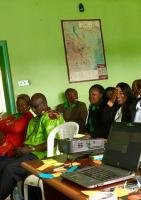
Strengthening Multiparty Democracy in Burkina Faso
DIPD partners with Centre pour la Gourvernance Démocratique (CGD) on stregthening intra- and inter-party dialogue through dialogue platforms.
